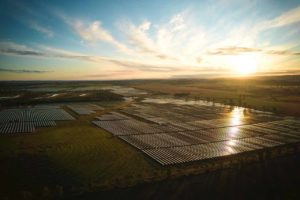My working definition of a compromise: a situation where nobody quite gets what they want.
That’s exactly how things looked in Jeju, Korea, last week as the Asian Infrastructure Investment Bank (AIIB) minted its Energy Sector Strategy. The big question was whether or not the strategy would allow the bank to fund new coal power stations.
The AIIB, backed with US$93 billion, will play a highly influential role in Asia’s future development.
On energy, this could just as easily mean the bank unlocks finance to catalyse a clean energy revolution in the region as it could that the bank delivers another generation of coal power, completely at odds with the prospect of a safe climate.
If the strategy itself was meant to signal that the AIIB would be financiers of technology that would help Asia develop while combating climate change, it was far from convincing.
The paragraph dealing with its treatment of coal was full of loopholes and references to vague stipulations, such as investments needing to be “demonstrably comparable” with a country’s transition to sustainable, low carbon energy, of that oil or coal power plants would have to be “carbon efficient”.
Civil society recognised that these loopholes were conceivably big enough to drag a coal power station through, and critiqued the policy. But if members and supporters of the coal industry were getting their hopes up of a new cash cow to fund their expansion plans, senior members of the bank let them down with some choice words.
Just prior to the energy sector strategy’s release, AIIB Vice President Thierry de Longuemar said in an interview that “there are things [the AIIB] won’t finance, like coal-fired power plants”.
Then, in front of the bank’s Board of Governors, President Jin Liqun said “there are no coal projects in our pipeline, and we will not consider any proposals if we are concerned about their environmental and reputational impact”.
Singling out coal power as an unsavoury investment will have disappointed the likes of Scott Morrison, who is among the Bank’s Governors. Australia is a shareholder of the AIIB, having subscribed US$3.7 billion of public funds to the bank, making it the 6th largest shareholder.
Morrison, known for waving a lump of coal around in Parliament during an oppressive heatwave earlier this year, telling fellow Members that it’s “just coal” and to not be afraid, would presumably have wanted to hear the bank being a little more gung-ho on coal, knowing that every new coal power plant built in Asia is a potential opportunity for Australian mines to export our climate-busting fuel source.
This is yet another reason why the AIIB needs to play a leadership role on energy from day one.
Even though many financial institutions are beginning to realise that coal is an energy source that has had its day and now needs to be replaced, that doesn’t change the fact that a coal build out is slated for SE Asia that is entirely incompatible with the notion of holding global warming to below two degrees.
Indonesia, for example, is planning to build more coal power in the next decade than Australia has in its own fleet of power stations and so far this year, at least 15 Vietnamese coal power stations with a combined capacity of over 20 Gigawatts have moved forward.
These power stations don’t exactly need access to another option for low-interest, long term debt finance. They are already being enabled largely through public financial institutions like the Chinese or Korean Export-Import Banks or the Japan Bank for International Cooperation.
The AIIB has an opportunity to deliver on a clean energy agenda that sets a different path to the public financial institutions of several of its member countries.
More importantly, it has the capacity to mobilise finance that creates opportunities to divert finance from other public and private institutions away from dirty coal and into the renewable energy revolution.
Not many people got what they wanted from the bank last week, but we may just end up with it playing a central role in the energy sector transformation we all need to keep a lid on global warming.
Julien Vincent is Executive Director, Market Forces










